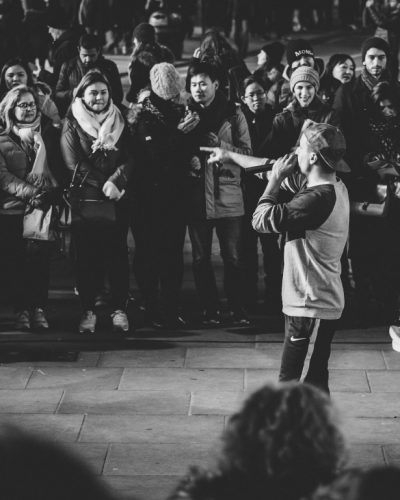- AI
- Air Pollution
- Arbitration
- Asia
- Automobile
- Bangladesh
- Banking
- Biodiversity
- Biological Inventions
- bLAWgathon
- Brand Valuation
- Business
- Celebrity Rights
- Company Act
- Company Law
- Competition Law
- Constitutional Law
- Consumer Law
- Consumer Protection Authority
- Copyright
- Copyright Infringement
- Copyright Litigation
- Corporate Law
- Counterfeiting
- Covid
- Cybersquatting
- Design
- Digital Media
- Digital Right Management
- Dispute
- Educational Conferences/ Seminar
- Environment Law Practice
- ESIC Act
- EX-Parte
- Farmer Right
- Fashion Law
- FDI
- FERs
- Foreign filing license
- Foreign Law
- Gaming Industry
- GDPR
- Geographical Indication (GI)
- GIg Economy
- Hi Tech Patent Commercialisation
- Hi Tech Patent Litigation
- IBC
- India
- Indian Contract Act
- Indonesia
- Intellectual Property
- Intellectual Property Protection
- IP Commercialization
- IP Licensing
- IP Litigation
- IP Practice in India
- IPAB
- IPAB Decisions
- IT Act
- IVF technique
- Judiciary
- Khadi Industries
- labour Law
- Legal Case
- Legal Issues
- Lex Causae
- Licensing
- Live-in relationships
- Lok Sabha Bill
- Marriage Act
- Maternity Benefit Act
- Media & Entertainment Law
- Mediation Act
- Member of Parliament
- Mergers & Acquisition
- Myanmar
- NCLT
- NEPAL
- News & Updates
- Non-Disclosure Agreement
- Online Gaming
- Patent Act
- Patent Commercialisation
- Patent Fess
- Patent Filing
- patent infringement
- Patent Licensing
- Patent Litigation
- Patent Marketing
- Patent Opposition
- Patent Rule Amendment
- Patents
- Personality rights
- pharma
- Pharma- biotech- Patent Commercialisation
- Pharma/Biotech Patent Litigations
- Pollution
- Posh Act
- Protection of SMEs
- RERA
- Sarfaesi Act
- Section 3(D)
- Signapore
- Social Media
- Sports Law
- Stamp Duty
- Stock Exchange
- Surrogacy in India
- TAX
- Technology
- Telecom Law
- Telecommunications
- Thailand
- Trademark
- Trademark Infringement
- Trademark Litigation
- Trademark Registration in Foreign
- Traditional Knowledge
- UAE
- Uncategorized
- USPTO
- Vietnam
- WIPO
- Women Empower
Introduction
With the advent of modern live streaming technology, anyone can access this technology and live-stream any event, from any place, at any time. However, it is one thing to live-stream one’s own content and another when someone else’s performance is live-streamed by someone in the audience.
Irrespective of the performance being paid, or a performance open to free public access, it is imperative to understand that performer’s rights vest in the person performing. This article analyzes the bracket of performer’s rights in the Indian Copyright laws and if live-streaming such performances without the authorization of performer is in consonance with the said laws.
- Live-Streaming Live Performances – In Consonance With Copyright Laws?
The present legislative regime of Copyright Act, 1957 defines the term ‘performer’ under Sec. 2(qq) “actor, singer, musician, dancer, acrobat, juggler, conjurer, snake charmer, a person delivering a lecture or any other person who makes a performance”, making it a non-exhaustive list.
Further, the 2012 amended Copyright Act, 1957 via section 38A, enlists the exclusive rights vested in a performer to take control over their work, which stood as a progressive move as compared to earlier laws which allowed them to only sue for infringement. These exclusive rights of performers under Section 38A can broadly be classified under two heads:
- Fixation of performance in a sound or visual recording and allied rights thereon.
- Broadcasting right and right to communicate, unfixed (live) performances except where the performance is already broadcast.
Performer’s Exclusive Right To Fixation
In order to understand if or not live-streaming of live performances is in consonance with the rights vested in the performer under the Indian copyright regime, it is important to figure out if live-streaming involves fixation of performances in a sound or visual recording and allied rights thereon, a right exclusive to only performers.
A live-stream simply means that the viewer enjoys the content in real-time, as the content is streamed without any consequential delay or time gap. The modern live-streaming technology involves the capturing of the audio and/or video content, its compression and encoding, transmission and then decoding at the viewer’s end. Hence, live-streaming always creates a digital recording, and at times, several digital intermediary copies of the recording, on the way to the viewers end.
Section 2(xxa) of the 1957 act defines visual recording in the following words “visual recording means the recording in any medium, by any method including the storing of it by any electronic means, of moving images or of the representations thereof, from which they can be perceived, reproduced or communicated by any method.” Thus, the recordings/storage done over the internet during live-streaming comes within the bracket of fixation. Hence, live-streaming performances without the consent of the right holder are in violation of performer’s exclusive right to fixation.
Performer’s Exclusive Right To Broadcast
The other bundle of rights vested in performers via section 38 A of the Copyrights Act is the right to control the communication of their unfixed performances. As per the said provision, Performers can control and prevent others from broadcasting their unfixed live performances. Hence, broadcasting live performances without taking consent of the performer amounts to copyright infringement.
Further, while interpreting Section 39A of the Copyright Act or Clause 28 of the Copyright (Amendment) Act, 2012, one can deduce a clear intention on the part of the legislature to bestow upon the performers, the right to compensation in the form of royalty every time their performance is broadcasted or communicated to the public.
Hence, in order to incentivize the specialized skill and labor involved in their performance, these rights allow the performer to control the ways and medium in which his performance will be broadcasted involving broadcasting both over wire or wireless medium.
Thus, whenever a live – stream is made available or played without securing due permissions from the performer, their broadcasting rights get violated. It is irrelevant whether anyone actually views the performance or not. Live-streaming such performances may also violate the rights of the broadcasting organizations or the organizer of the event who via an agreement has been vested with the right to broadcast his live performance.
Moral Rights Of The Performer
In addition to economic rights, a performer also enjoys moral rights including rights that are non-commercial in nature. As per the moral rights bestowed upon performers by Section 38 B of the copyright act, a performer has the right to:
- “To claim to be identified as the performer of his performance except where omission is dictated by the manner of the use of the performance; and
- To restrain or claim damage in respect of any distortion, mutilation or other modification of his performance that would be prejudicial to his reputation.”
These rights are bound to be infringed if the live streamer does not credit the original performer with the performance, violating his rights to be be identified as the performer of his performance. More upon, adding any additional or objectionable matter to the stream will violate the exclusive rights vested on the performer to prevent any distortion, mutilation or other modification of his performance that would be prejudicial to his reputation.
Do Performers Relinquish Their Exclusive Rights By Giving Upaid Live Performances Open To Public Access?
At times, performers give impromptu live performances which are also unpaid, like in fairs, parks and other public areas. One can contest that since such live performances are unpaid and are freely accessible by the public at large, the rights vested in the performers stand relinquished.
To answer this question, it is impediment to understand the applicability of Section 21 of Copyright Act 1957 on the performers. The said section states that “The author of a work may relinquish all or any of the rights comprised in the copyright in the work.” However, unlike copyright in original works, performer’s’ rights cannot be relinquished. Section 21 of the 1957 act stands inapplicable to performer’s rights owing to the obvious omission of Section 21 from “Other provisions applying to broadcast reproduction right and performer’s right” enlisted under Section 39A of the Act.
Consequently, just because a performer makes a live performance free of charge and in a setup open to public access, one cannot live-stream the performance infringing his broadcasting rights upon the assumption of relinquishment of rights vested in him.
Safe Harbour Under Fair Use?
However, does an innocent person wanting to live stream the performance without any commercial motive, need to take permission from the performer prior to live-streaming? Can he seek safe harbor under the fair use provisions of the Copyright Act?
Section 39 of the Copyright Act 1957 enlists circumstances that come under the umbrella of fair use doctrine and do not constitute infringement of performers’ rights. Live streamers may try to seek safe harbor under this section by claiming that the live-stream was for private use of a small group of friends and family and that there was no “communication to public” at large. However, “communication through satellite or cable or any other means of simultaneous communication to more than one household or place of residence including residential rooms of any hotel or hostel shall be deemed to be communication to the public.”[1] Hence, live – streaming even to a private group of individuals will amount to infringement of performer’s rights if the individuals at the receiving end of the live-stream reside in more than one place and the same will clearly be deprived of safe harbor protection under fair use.
Furthermore, as explicitly stated in section 39 (b) of the Act and also affirmed by Indian judiciary[2], only “excerpts of a performance” can avail the defense of fair use. Therefore, even if the live-stream is made to one household only, if it contains a sizeable portion of the performance, the same can not avail the defense of fair use.
Conclusion
When one signs up for an online service or platform, they most likely contractually submit to the terms and services of the said platform whereupon they agree to license a bundle of their legal rights which are inclusive of copyright, trademark and publicity rights, to the company with respect to the content they upload on the same platform and the same is shared and viewed by not only the platform’s managing team but also the users on the platform. It is thus implied that while live streaming on such platforms, one is assumed to have the knowledge of the uploaded content being viewed by people more than mere private group of individuals. Further, as expected out of the above mentioned contract, before signing up on a platform, when someone publishes any content including live-streams on the platform, they are assumed to hold all necessary legal rights, including permissions from third parties. At occasions, users also contractually agree to reimburse the platform for any legal expenses arising out of any infringing content shared by users on the platform, be it intentional or unintentional.
Author: Sonal Kumari, in case of any queries please contact/write back to us via email to chhavi@khuranaandkhurana.com or at Khurana & Khurana, Advocates and IP Attorney.
[1] Section 2(e) in the Copyright Act, 1957
[2] Super Cassettes Industries Ltd. vs Hamar Television Network Pvt. Ltd., 2011 PTC (45) PTC 70 (Del.).





